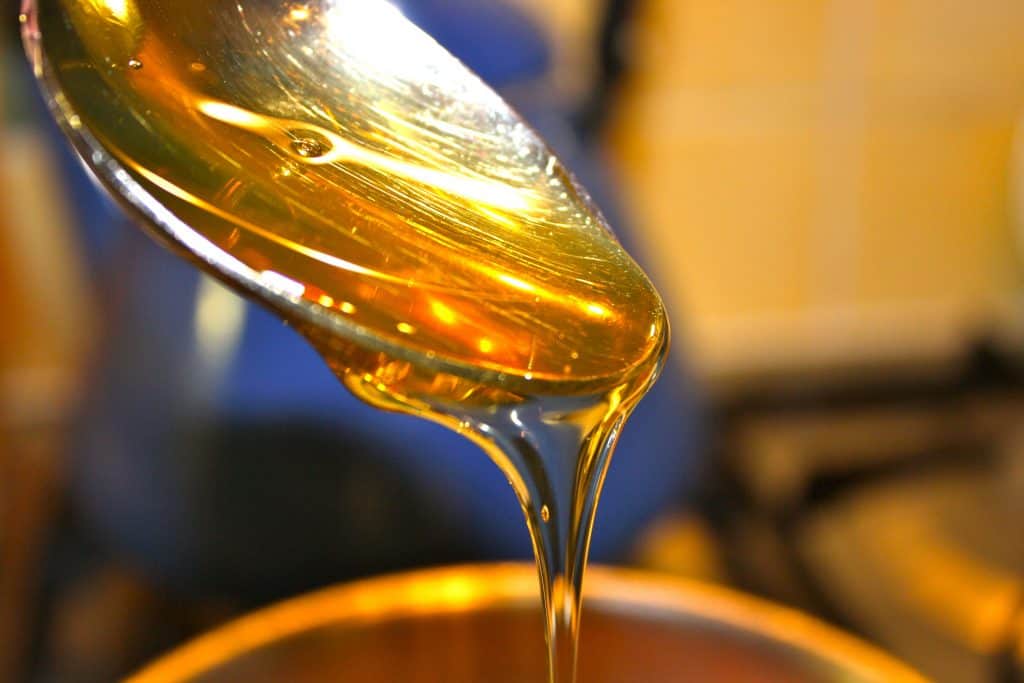Can Honey Be Used To Treat Allergies?
What Are Allergies?
Seasonal allergies are the scourge of many who love the outdoors. They normally start in February and last until August or September. Seasonal allergies happen when plants start to produce pollen. Pollen is a powder-like substance that helps plants produce seeds and reproduce.
People can inhale pollen, leading to seasonal allergies. Allergies happen when the body recognizes pollen as an outside invader, like a bacteria or virus. In response, the body mounts an attack. This causes symptoms such as:
- coughing
- sore throat
- sneezing
- headaches
- watery and itchy eyes
- a runny nose
- trouble breathing
There are over-the-counter treatments for seasonal allergies, but a lot of people prefer natural treatments instead. An example that is rumored to help with seasonal allergies is local honey. Local honey is untreated raw honey that is made near you. This honey is said to help allergies, but scientists and doctors are skeptical.
Why Does Honey Help Allergies?

The idea behind the honey treatment for allergies is similar to that of a person receiving injections for an allergy. But while it has been proven that allergy vaccines are effective, honey does not have scientific studies to back it yet. When a person consumes honey, it is believed that the body will see it as ingesting pollen. Over time, a person may become less sensitive to this pollen. Therefore, they may encounter fewer seasonal allergy symptoms.
It is true that bees make honey and pollinate flowers. But it is thought that the quantities of pollen from the environment and plants are very small and varied. When a person consumes honey, the amount (if any) of pollen to which they are exposed is not guaranteed. This differs from allergy vaccines that intentionally desensitize a person to pollen with standard measurements.
What Surveys Have Been Conducted on Honey and Allergies?
One study analyzed the effect of pasteurized honey on allergy symptoms compared to local honey. The results showed that none of the groups experienced relief from seasonal allergies when they ate honey.
However, a different study found that honey consumed in high doses improved a person’s allergy symptoms for an eight week period.
These studies have opposing results and small sample sizes. This makes it difficult to determine whether honey can reliably help a person reduce their seasonal allergy symptoms. Larger studies are required to recommend if you should eat honey and what amounts are good for allergies.
What You Need to Know Before Using Honey as a Treatment
Doctors and researchers haven’t endorsed a certain amount of honey that a person should consume each day to relieve their seasonal allergy symptoms. In addition, there is no guarantee of the amount of pollen that could be in a serving of honey.
Keep in mind that you should not give honey to children under 1 year old. This is because unprocessed, raw honey has a risk of botulism in babies. In addition, some people who have a severe allergy to pollen may experience a severe allergic reaction known as anaphylaxis after consuming honey. This can cause severe difficulty breathing. Others may experience allergic reactions of the mouth, throat or skin such as itching or swelling.
Conclusions on Honey and Allergies
It has not been scientifically proven that honey reduces allergies. However, it can still be a good alternative to sweet foods and sugar. Some people also use it as a cough suppressant. If you have seasonal allergies, you may need to seek a proven medical treatment. Examples include over-the-counter allergy medications or simply avoid going out as much as possible.



